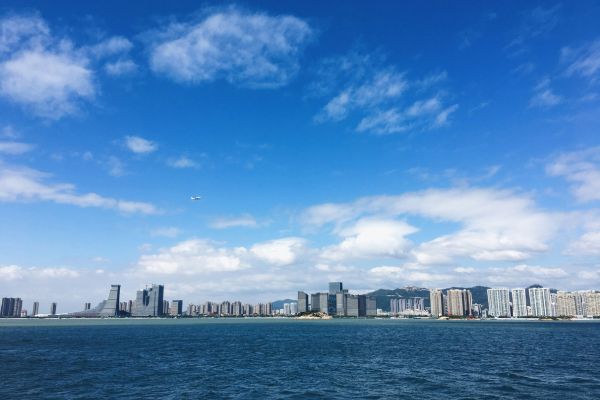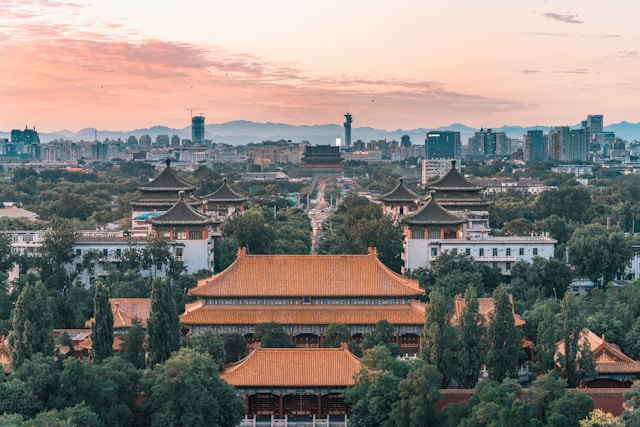
On 9th Nov. 2019, Judge Gao Xiaoli (高晓力) from China’s Supreme People’s Court (SPC) gave a speech titled "Exploration and Innovation of the One-stop Diversified Settlement Mechanism of International Commercial Disputes of the Supreme People’s Court" (最高人民法院“一站式”国际商事纠纷多元化解决机制的探索与创新) in Shenzhen, China.
Judge Gao is the deputy director of the SPC’s 4th Civil Division and also a judge of China International Commercial Court (CICC).
The speech was delivered at the Ninth South China Enterprises Law Forum hosted by Shenzhen Court of International Arbitration (SCIA). We came across the speech on the WeChat (a social media) homepage of SCIA, which was later posted on the CICC website.
Judge Gao first reviewed the SPC’s case trial development in international commercial disputes.
Since the reform and opening up in the 1980s, the SPC has set up an Economic Trial Division to be in charge of foreign-related commercial disputes.
After China’s accession to the WTO in 2001, in order to meet its requirements, the SPC set up the 4th Civil Division to deal with civil, commercial, and maritime disputes involving foreign countries, Hong Kong S.A.R., Macao S.A.R., and Taiwan region.
At the same time, the SPC also requires local courts to set up similar trial divisions, or, when the caseload is not that large, to appoint several collegial panels to hear such cases, or to have one specific tribunal to centrally hear foreign-related civil and commercial disputes that were originally tried by multiple local courts in a region. A good example can be seen in Hainan’s newly-established First and Second Foreign-related Civil and Commercial Tribunals, a pilot program towards a more centralized administration system on international cases.
As China began to promote the Belt and Road Initiative (BRI), the central government issued the “Opinions on the Establishment of ‘the Belt and Road Initiative’ International Commercial Dispute Settlement Mechanism and Institutions” (关于建立“一带一路”国际商事争端解决机制和机构的意见) in 2018. Accordingly, the SPC established the CICC, the International Commercial Expert Committee (ICEC), and the One-stop Diversified Settlement Mechanism of International Commercial Disputes integrating litigation, mediation, and arbitration.
Judge Gao’s speech focused on the SPC’s achievement of the above work after 2018.
According to Judge Gao, as of Nov. 2019, the CICC had accepted 13 cases of international commercial disputes, having closed 5 of which, with 3 decisions issued and 2 more coming soon. These three published decisions are about confirming the validity of arbitration agreements. (For more info on these CICC cases, please read related posts on CICC case tracking.)
Judge Gao indicated that the CICC was more of an alternative option rather than a replacement to other international commercial dispute resolution methods.
The CICC has selected 14 judges who are well-versed in international treaties, international customs, international trade, and investment practices, and can use English as the working language. At present, these judges concurrently serve at the 1st Division and the 2nd Division of the CICC.
Compared with the traditional trial mode of Chinese courts, the CICC has the following three characteristics:
(1) The first instance is final. In China, the cases tried by local courts are final in the second instance, except for the cases tried by the SPC, because there is no appeal available. Being affiliated to the SPC, the cases tried by the CICC are final in the first instance as well.
(2) The minority opinions of the collegial panel may be stated in the judgment. Comparatively, only the majority opinions of the collegial panel are required to be stated in the cases tried by other courts (however, at present, local courts are also trying to state the minority opinions of the collegial panel in the judgment).
(3) The parties may submit documents in English only, without providing their Chinese translations. Comparatively, in other cases, the parties must submit Chinese translations of the English documents.
The CICC has made great efforts in ascertaining and applying foreign laws (a good example is a one-stop platform launched by the SPC in 2019), while in other courts or tribunals, it’s generally difficult for the judges to ascertain foreign laws and they are therefore reluctant to apply the same.
The CICC’s judgments can be enforced in 34 countries that have signed bilateral treaties with China concerning recognition and enforcement of foreign judgments. Based on the principle of reciprocity, China has also recognized the judgments of several countries that have not signed such treaties. In addition, the SPC is preparing judicial documents to facilitate the recognition and enforcement of foreign civil and commercial judgments in China. China hopes to promote mutual recognition and enforcement of foreign judgments, including the CICC’s judgments, with a more open attitude.
The CICC supports international commercial mediation and arbitration through the One-stop Diversified Settlement Mechanism of International Commercial Disputes.
In terms of mediation, the CICC’s judges can preside over the mediation, and the parties can choose to have the experts of the ICEC preside over the mediation, or they can choose the one-stop platform of international commercial mediation institution for mediation. After case filing, the parties may choose mediation before paying the court costs; they may also refer to mediation at any time during the litigation.
In terms of arbitration, five international commercial arbitration institutions have cooperated with the one-stop platform. If the case falls within the CICC’s acceptance scope, the parties may apply to the arbitration institution cooperating with the CICC for arbitration.
In the end, Judge Gao introduced the first batch of decisions rendered by the CICC. (We have covered this in detail in our previous posts.)
Contributors: Guodong Du 杜国栋







